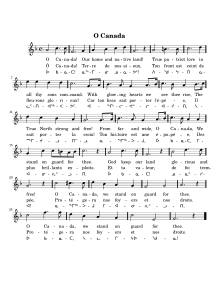European Canadian
European Canadians (also known as Euro-Canadians) are Canadians with ancestry from Europe.[2]
The French were the first Europeans to establish a continuous presence in what is now Canada. Hélène Desportes is considered the first white child born in New France. She was born circa 1620, to Pierre Desportes (born Lisieux, Normandie, France) and Francoise Langlois.[3]
In the 2006 census, the largest European ancestry groups were English (21.03%), French (15.82%), Scottish (15.11%), Irish (13.94%), German (10.18%), Italian (4.63%).
However, the country's largest self-reported ethnic origin is "Canadian" (accounting for 32.22% of the population). Since 1996, "Canadian" as an ethnic group has been added to census questionnaires for possible ancestry. English-Canadians, British-Canadians and French-Canadians are considered an under-count.[4]
In the National Household Survey Profile, Canada, 2011 10,563,805 people identified as "Canadian" as their ethnic group.[5]
History
| Number of European Canadians 1871 - 2011 |
| Year |
Population |
% of Canada |
R |
Year |
Population |
% of Canada |
R |
| 1871 | | 97.0% | [6][7] | 1971 | | 96.3% | [6] |
| 1881 | | 95.84% | [7] | 1981 | | 93.0% | [8] |
| 1901 | | 96.24% | [7] | 1991 | | | |
| 1911 | | 94.35% | [7] | 1996 | | | |
| 1921 | | 97.5% | [7] | 2001 | | | |
| 1931 | | 97.7% | [7] | 2011 | | 76.7% | [9] |
| 1941 | | 97.8% | [6] | 2016 | | | |
| 1951 | | 96.9% | [6] | | | | |
| 1961 | | 96.8% | [6] | | | | |
| 1966 | | 96.8% | [6] | | | | |
|
Today
The majority of Canada's population is still made up of European immigrants and their descendants, though their percentage has been decreasing every year since the 1970s. Elements of Aboriginal, French, British and more recent immigrant customs, languages and religions have combined to form the culture of Canada and thus a Canadian identity. Canada has also been strongly influenced by its linguistic, geographic and economic neighbour, the United States.
Cultural icons
Music
Another area of cultural influence are Canadian Patriotic songs:
Unofficial national anthem
- The Maple Leaf Forever - is an older but unofficial national anthem written by Scotsman Alexander Muir in 1867.[13] It was in consideration for official national anthem, however, no French version was ever written, so, it was never popular with Francophones.[14]
Ancestry
See also
References
- ↑ "National Household Survey (NHS) Profile, 2011". Statcan.gc.ca. 2013-05-08. Retrieved 2013-05-27.
- ↑ www.oxforddictionaries.com Euro-Canadian definition
- ↑ Bennett, Ethel M. G. Dictionary of Canadian Biography Online. 2000. "Hélène Desportes". Accessed August 10, 2007.
- ↑ The Changing Face of Canada: Essential Readings in Population
- ↑ "National Household Survey Profile". Statistics Canada. 2011. Retrieved February 13, 2015.
- 1 2 3 4 5 6 Table 1: Population by Ethnic Origin, Canada, 1921-1971 Page: 2
- 1 2 3 4 5 6 "Canada Year Book 1922-23 Racial-origins Page: 158-59" (PDF). Statistics Canada. Retrieved 8 February 2013.
- ↑ Nationalism and National Integration By Anthony H. Birch
- ↑ "National Household Survey Profile". Statistics Canada. 2011
- ↑ "'O Canada'". The Canadian Encyclopedia. Retrieved 2008-04-22.
- ↑
- ↑ Department of Canadian Heritage. "Canadian Heritage – National Anthem: O Canada". Queen's Printer for Canada. Retrieved June 29, 2010.
- ↑ Anonymous. "Marches". L'Association Canadienne De L'Infanterie/Canadian Infantry Association. Retrieved May 4, 2012.
- ↑ "Canadian Heritage – Patriotic Songs". Pch.gc.ca. March 3, 2010. Retrieved October 29, 2011.
Further reading
- Bramadat, Paul; David Seljak (2009). Religion and Ethnicity in Canada. University of Toronto Press.
- Bramadat, Paul; David Seljak (2008). Christianity and Ethnicity in Canada. U of Toronto Press. p. 247.
- Haig-Brown, C.; Nock, D.A. (2006). With Good Intentions: Euro-Canadian and Aboriginal Relations in Colonial Canada. UBC Press. ISBN 0-7748-1138-2.
- Kallen, Evelyn (2003). Ethnicity and Human Rights in Canada: A Human Rights Perspective on Ethnicity, Racism, and Systemic Inequality. Oxford UP.
- Kralt, John. "Country of Birth of Parents And Ethnic Origins - A Comparison of Reporting Patterns in the 2001 Census,"
- Magocsi, Paul R (1999). Encyclopedia of Canada's peoples. Society of Ontario, University of Toronto Press. ISBN 0-8020-2938-8. ; 1300pp; comprehensive scholarly coverage of every group
Statistical

